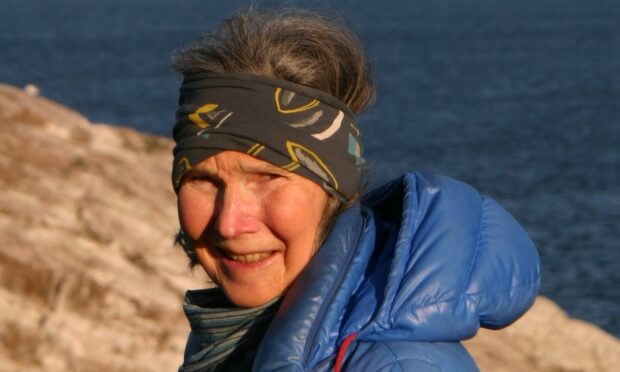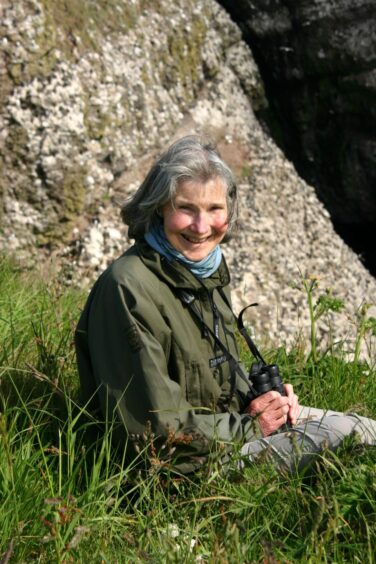When Sarah Wanless attended a tutorial as part of her zoology course more than 40 years ago, she had no idea what an impact it would have on her career.
But that one lecturer – who happened to mention a gannet colony close to home in her native Yorkshire – sparked an interest, and she has been “hooked” on seabirds and their habitats ever since.
Now an emeritus fellow of the UK Centre for Ecology and Hydrology, Professor Wanless is recognised as a scientist whose work is “essential” to the conservation of marine eco-systems.
And today she is celebrating further recognition – after being made an MBE in the 2023 New Year Honours list for services to seabird ecology.
Long-term research
The 71-year-old, who studied at Aberdeen University, points to that one lecture for getting her “hooked” on her subject.
She said: “Having been one of those students who perhaps didn’t work as hard as I perhaps should have done, suddenly I was just motivated and absolutely inspired.”
After completing a PhD and doing “lots of different things in different places”, Prof Wanless started working for what is now called the UK’s Centre of Ecology and Hydrology (CEH) in the 1980s.
Working from the research station in Banchory, she began taking part in a long-term study of seabird colonies on the Isle of May in the Firth of Forth.
Staying on the island for months at a time, Prof Wanless continued to work there until her retirement in 2016.
Prof Wanless, of Glassel, said: “Really what my work has been all about is tracking all the different things that have been happening in the marine environment. Looking at how seabirds and things have responded to different pressures.
“There have been lots of different questions to answer. So it’s the case of having a long-term study that is then really, really powerful in terms of looking at these big changes in our environment.”
‘Always questions to answer’
Throughout her years of research, Prof Wanless has written more than 200 papers and has received a number of accolades.
In 2018, she was named one of 10 of the Saltire Society’s Outstanding Women of Scotland and described as a “highly regarded scientist with international recognition whose work has been essential to the conservation of marine ecosystems”.
Despite this, she described her MBE as a shock.
“It’s very hard to put into words,” she added. “I’m very pleased, very honoured, and it’s very unexpected to get an award like that.”
Now a fellow of CEH, she continues to contribute to research and gets a “huge sense of satisfaction” in helping and watching new researchers starting out.
“The more you do know the more you realise how little you know,” she added.
“There are always questions, you answer one question but it raises other questions.”


Conversation